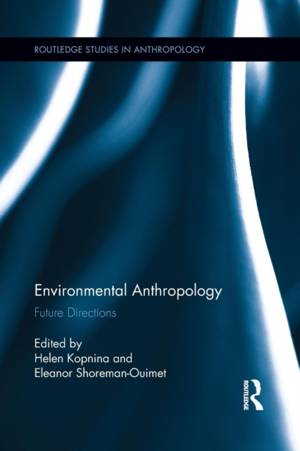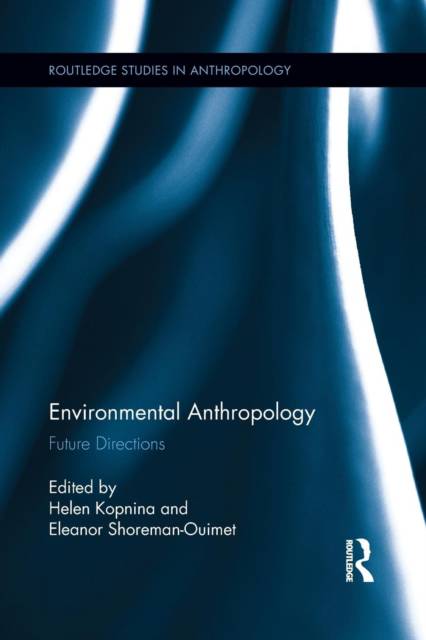
- Afhalen na 1 uur in een winkel met voorraad
- Gratis thuislevering in België vanaf € 30
- Ruim aanbod met 7 miljoen producten
- Afhalen na 1 uur in een winkel met voorraad
- Gratis thuislevering in België vanaf € 30
- Ruim aanbod met 7 miljoen producten
Omschrijving
This volume presents new theoretical approaches, methodologies, subject pools, and topics in the field of environmental anthropology. Environmental anthropologists are increasingly focusing on self-reflection - not just on themselves and their impacts on environmental research, but also on the reflexive qualities of their subjects, and the extent to which these individuals are questioning their own environmental behavior. Here, contributors confront the very notion of "natural resources" in granting non-human species their subjectivity and arguing for deeper understanding of "nature," and "wilderness" beyond the label of "ecosystem services." By engaging in interdisciplinary efforts, these anthropologists present new ways for their colleagues, subjects, peers and communities to understand the causes of, and alternatives to environmental destruction. This book demonstrates that environmental anthropology has moved beyond the construction of rural, small group theory, entering into a mode of solution-based methodologies and interdisciplinary theories for understanding human-environmental interactions. It is focused on post-rural existence, health and environmental risk assessment, on the realm of alternative actions, and emphasizes the necessary steps towards preventing environmental crisis.
Specificaties
Betrokkenen
- Uitgeverij:
Inhoud
- Aantal bladzijden:
- 314
- Taal:
- Engels
- Reeks:
Eigenschappen
- Productcode (EAN):
- 9781138952713
- Verschijningsdatum:
- 8/09/2015
- Uitvoering:
- Paperback
- Formaat:
- Trade paperback (VS)
- Afmetingen:
- 152 mm x 229 mm
- Gewicht:
- 439 g

Alleen bij Standaard Boekhandel
Beoordelingen
We publiceren alleen reviews die voldoen aan de voorwaarden voor reviews. Bekijk onze voorwaarden voor reviews.










